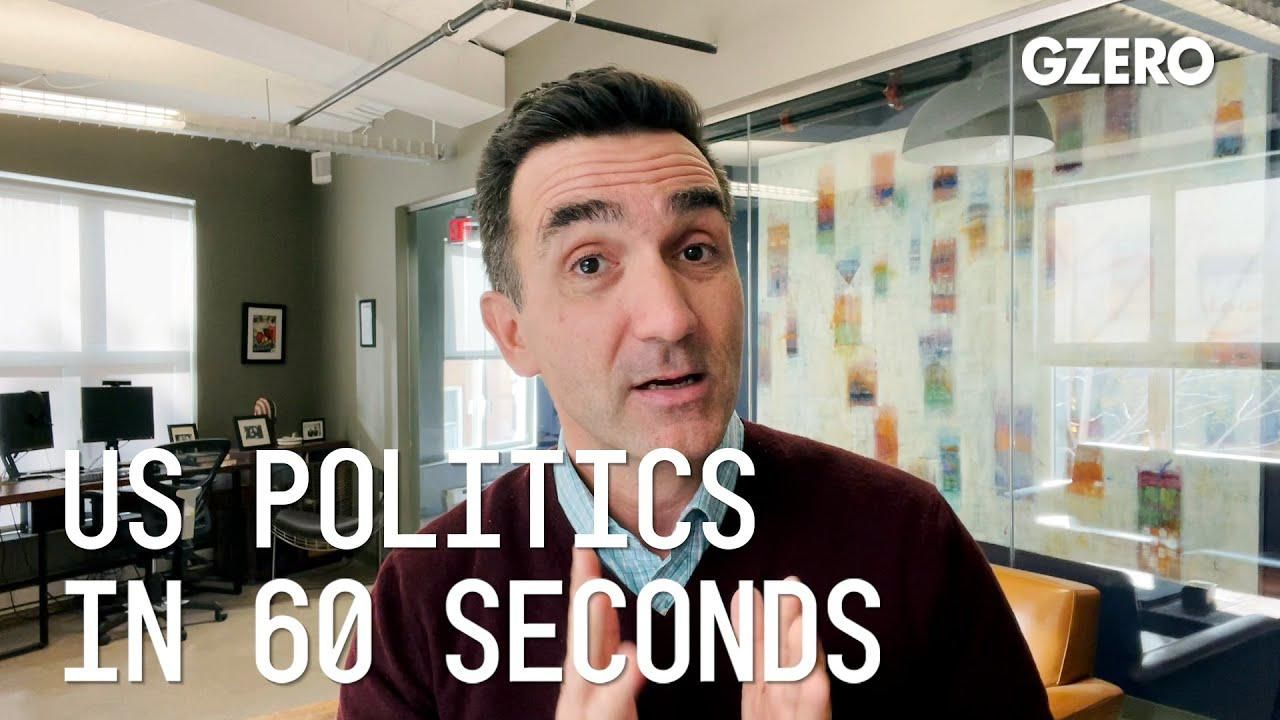US Politics In 60 Seconds
If Roe v. Wade is overturned, Democrats will fight at the state level

After 50 Years Fate of Roe v. Wade Uncertain | US Politics in :60 | GZERO Media

Jon Lieber, head of Eurasia Group's coverage of political and policy developments in Washington, shares insights on US politics:
What is happening to Roe v. Wade?
Well, this week, the Supreme Court heard arguments in a case called Dobbs v. Jackson, which challenges a Mississippi law that would outlaw abortions after 15 weeks in the state. That law itself is a direct challenge to the legal precedent set by Roe v. Wade nearly 50 years ago, which is one of the most politically important Supreme Court decisions in American history. It has driven deep polarization between the right and the left in the US and become a critical litmus test. There are very few, if any, pro-life Democrats at the national level and virtually no pro-choice Republicans at any level of government. Overturning Roe has been an animating force on the political right in the US for a generation. And in turn, Democrats have responded by making protecting Roe one of their key political missions.
So, what happens if conservatives are successful in overturning Roe v. Wade? Well, first Democrats are unlikely to take control of the Supreme Court for at least a decade and perhaps longer. So, there's not really a point in challenging the new precedent through the courts. This means all the attention will turn to statehouses where both Republicans and Democrats will fight for pro-life and pro-choice legislatures who will be able to set new policies on both how long abortions are available to women once they're pregnant and what types of facilities are allowed to do abortions. Some states have already put in place restrictive laws that say abortions can only be performed in facilities with a very high standard of medical care, which in and of itself is a way of limiting access to abortions.
You're likely to see some states move to ban abortions immediately, a position that's going to be politically unpopular as a majority of Americans support abortions with some restrictions. About 60% of Americans say they support access to abortion in the first trimester, but only about 30% of Americans say they would support abortions in the second trimester, which starts at about 12 weeks, significantly below the current threshold set under Roe v. Wade. So, while some deep red states will ban it outright, there will probably be an even smaller number of deep blue states that go beyond the current viability standard. What they're likely to do is enshrine current law at the state level. Over time without Roe, some parts of the two parties' coalitions may shift as they attempt to moderate on the issue to attract political independence as this will now become an explicitly political issue where politicians at the state level will be expected to deliver. This is likely to lead to some new but unstable, political equilibriums with swing states and compromise measures that change with control of the state government.
However, some of these states are going to find compromised middle grounds that endure.
GZERO World heads to the World Economic Forum in Davos, where Ian Bremmer lookst at how President Trump’s second term is rattling Europe, reshaping both transatlantic relations and the global economy, with Finland’s President Alexander Stubb and the IMF’s Kristalina Georgieva.
Think you know what's going on around the world? Here's your chance to prove it.
How widely is AI actually being used, and where is adoption falling behind? Speaking at the 2026 World Economic Forum in Davos, Brad Smith, Vice Chair and President of Microsoft, outlined how AI adoption can be measured through what he calls a “diffusion index.”
U.S. President Donald Trump holds a bilateral meeting with NATO Secretary General Mark Rutte at the World Economic Forum (WEF) in Davos, Switzerland, January 21, 2026.
After saying numerous times that he would only accept a deal that puts Greenland under US control, President Donald Trump emerged from his meeting with NATO Secretary General Mark Rutte singing a different tune.